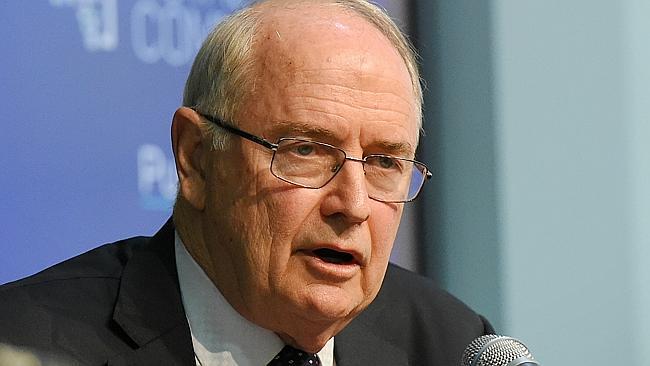Nuclear Fuel Cycle Royal Commission: economist Ross Garnaut believes in renewables ahead of nuclear
NUCLEAR electricity generation is unlikely to be economically viable in Australia as solar, wind and other renewable energy becomes cheaper, economist Ross Garnaut has told a royal commission.

SA News
Don't miss out on the headlines from SA News. Followed categories will be added to My News.
NUCLEAR electricity generation is unlikely to be economically viable in Australia as solar, wind and other renewable energy becomes cheaper, economist Ross Garnaut has told a royal commission.
The first witness in the nuclear royal commission’s public sessions, which started Wednesday morning, Professor Garnaut said uranium enrichment in South Australia was more likely into the future.
But he said increasingly lower costs of solar, wind, wave, hydro and other renewable energy represented Australia’s best chance for low-cost electricity while curbing carbon emissions.
This low-cost advantage was likely to revive Australia’s manufacturing sector in new energy-intensive areas, such as making solar panels and carbon fibre.
Professor Garnaut, who authored national climate change reviews in 2008 and 2011, said nuclear energy would play a substantial role across the world in reducing emissions.
He said there had been some retreat in nuclear power generation since the 2011 Fukushima nuclear accident, particularly in Japan and Germany, but expansion in China and India.
Developing countries, particularly China and India, did not have Australia’s opportunities for renewable energy and required large amounts of electricity.
Professor Garnaut told the Nuclear Fuel Cycle Royal Commission that Australia’s first role would be as a supplier of uranium oxide to these countries.
“In the low-carbon economy of the future, I expect that because of Australia’s exceptionally high quality of renewable resources, that energy will again become a low-cost input into Australian industry,” he said later.
“We will again become, as we once were, an efficient processor of energy-intensive raw materials.
“These will logically include enrichment of uranium for the industries of China and India.
“It’s much less certain that if free markets were determining outcomes, that nuclear power in Australia would be economic.”
This would depend upon technological change in the future, but was unlikely given the large recent reduction in renewable energy costs.
But Professor Garnaut said low international transport costs of enriched uranium, a process which produces a critical component of nuclear power generation, meant a domestic reactor was unlikely to be viable.
He used the example of gas, which he said was once a low-cost fuel but became more expensive for Australian electricity generators as international demand increased amid relatively low transport costs.
“Australia does have a significant role in the global effort on climate change through the supply of uranium oxide and, I would expect in the low carbon economy of the future, of enriched uranium,” Professor Garnaut said.
Nuclear royal commissioner Kevin Scarce, a former state governor, is using the public sessions to inform his final report, which is due in May next year.





